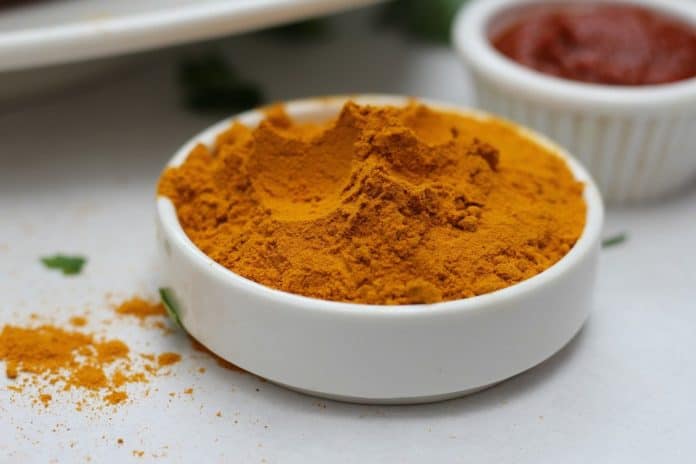Last Updated on October 11, 2023 by The Health Master
Turmeric vs. Conventional Drugs
Turmeric vs. Conventional Drugs: Turmeric, a golden-hued spice known for its myriad health benefits, has emerged as a potent contender in the battle against indigestion.
A recent study published in the British Medical Journal’s Evidence-Based Medicine sheds light on the efficacy of turmeric, hinting at its potential to rival conventional medications aimed at curbing excess stomach acid.
The Power of Curcumin:
At the heart of turmeric’s indigestion-fighting prowess lies its active compound, curcumin.
This natural wonder is believed to possess remarkable anti-inflammatory and antimicrobial properties, making it a longstanding go-to remedy for various ailments, including indigestion.
While turmeric’s medicinal potential has been acknowledged for centuries, researchers sought to unravel how it measures up against traditional pharmaceutical options in treating this common ailment.
The Groundbreaking Trial:
A controlled trial was conducted, involving 206 participants ranging in age from 18 to 70 who were afflicted with recurrent upset stomachs, a condition clinically known as functional dyspepsia.
The cause of this discomfort remained a mystery, prompting the need for an effective intervention.
The participants were randomly divided into three treatment groups, each assigned a specific regimen for a duration of 28 days.
The groups were as follows:
1. Turmeric Group:
Participants in this cohort received two large capsules containing 250 mg of curcumin, taken four times a day, coupled with one small placebo capsule (comprising 69 individuals).
2. Omeprazole Group:
This group was administered one small 20 mg omeprazole capsule daily, alongside two large dummy capsules, also taken four times a day (comprising 68 individuals).
3. Combined Turmeric and Omeprazole Group:
Here, participants received both turmeric and omeprazole, with 69 individuals in this category.
Promising Results:
The study employed the Severity of Dyspepsia Assessment (SODA) score to gauge the severity of symptoms.
Encouragingly, by day 28, significant reductions in both pain and other associated symptoms were observed across all groups, signifying a notable improvement.
Furthermore, these positive trends continued to strengthen by day 56, particularly in terms of pain relief.
This indicates a sustained and potentially superior efficacy of turmeric compared to conventional medication in the long term.
Disclaimer: This article contains information derived from the source mentioned below. Our team utilized an AI language model to rewrite and present the news or article in a unique format.
Vitamin B17: Unmasking the Controversial Cancer cure Myth
Revolutionary Weight Loss Drug, KDS2010, shows promise in Clinical Trials
Drug alert: WHO issues urgent Alert over fake liver drug in India and Turkey
Controlling Mood Swings: 5 Effective ways to achieve the goal
Oil Pulling: Benefits for Your Body and How to Do It
Revolutionary Device: New Technology for Diabetes Detection and Management
Beat Dust Allergies Naturally: 5 Simple Home Remedies
5 ways to prevent the side effects of Oily Food consumption
5 प्राकृतिक तरीके immunity को बढ़ाने के लिए: Must read
Liver Cirrhosis: let’s understand it’s early symptoms and identification










